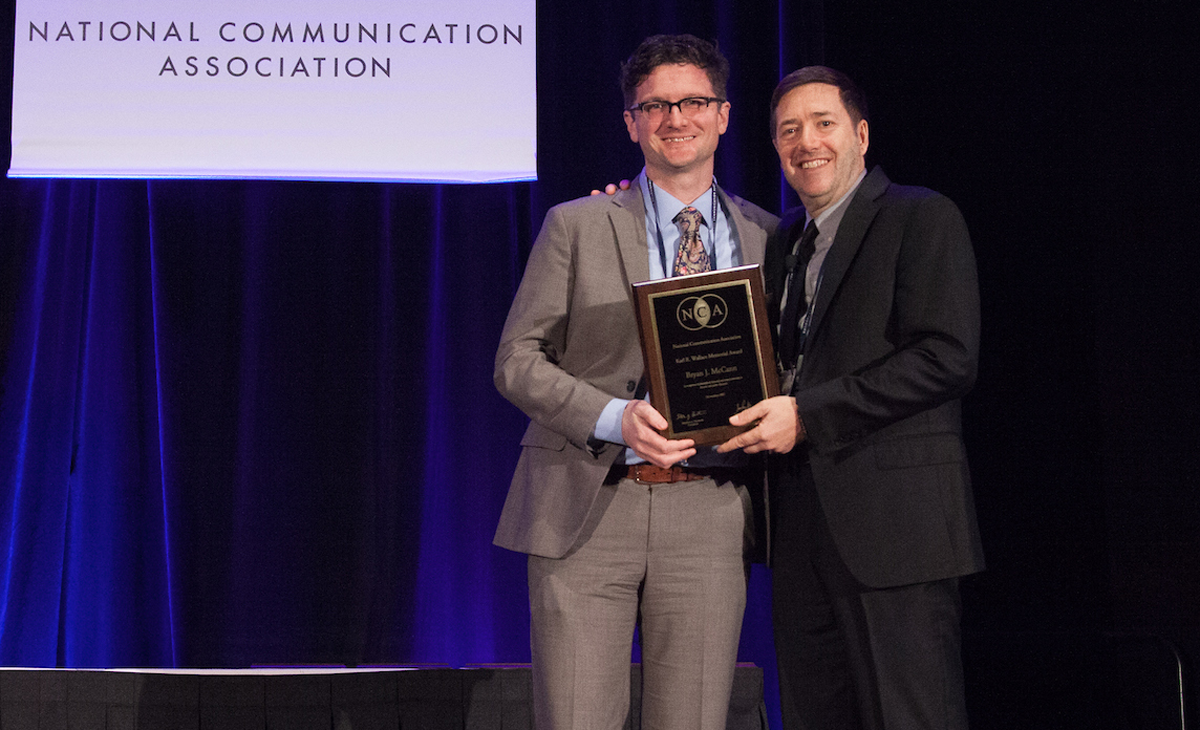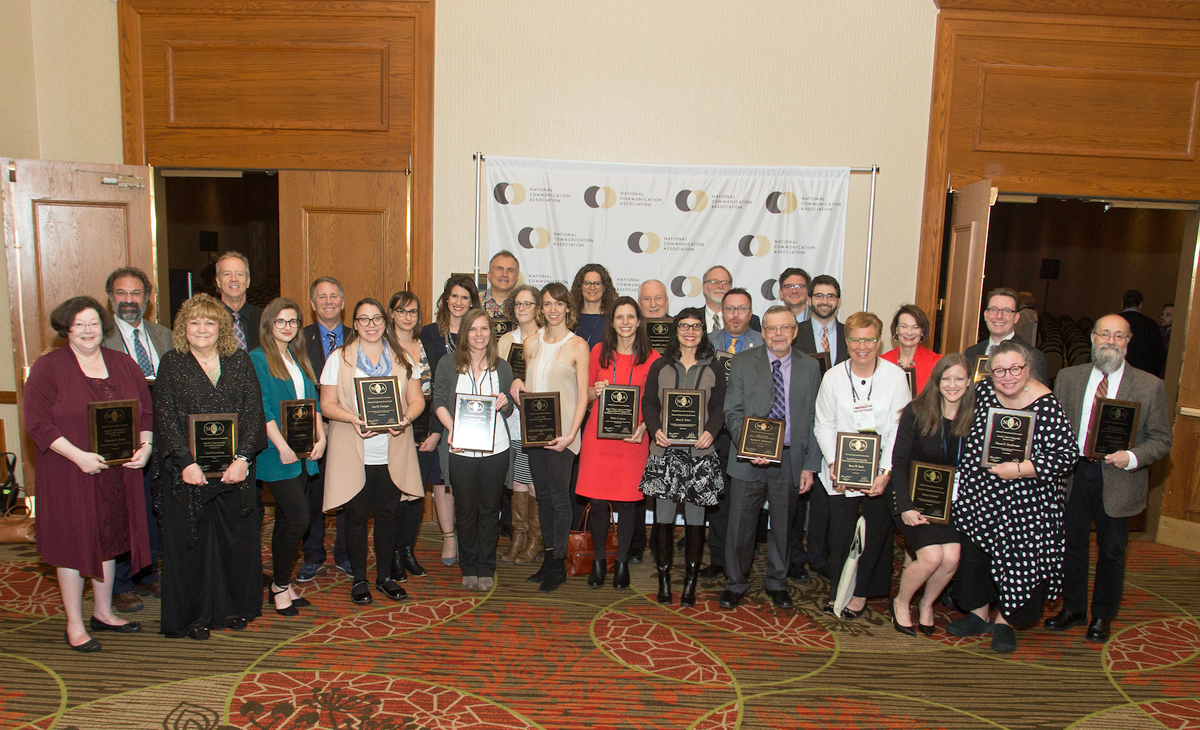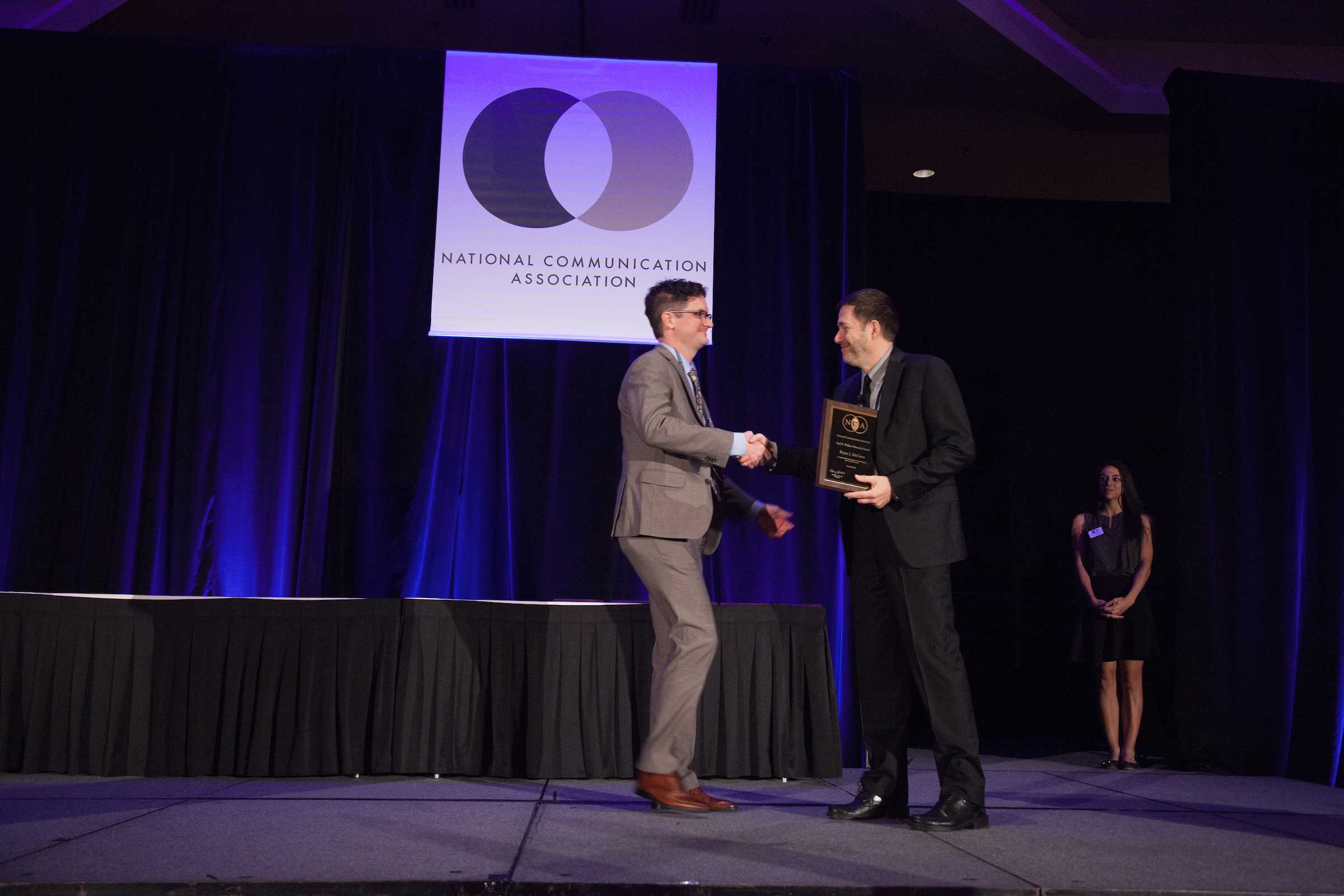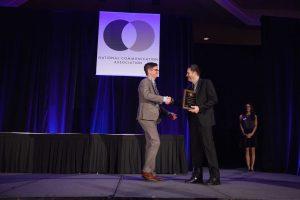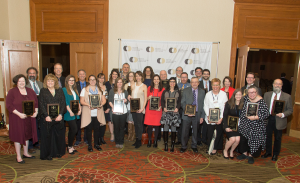Department of Communication Studies assistant professor Bryan McCann is using his expertise in rhetorical studies to bring awareness to the criminal justice system and race.
McCann received the National Communication Association’s 2017 Karl R. Wallace Memorial Award for his proposed book project, “The Idea of the Negro: Debating Black Protest Fiction after the Harlem Renaissance.”
The award is given annually to a scholar early in his or her career who promotes philosophical, historical or critical scholarship in rhetoric and public discourse, according to the National Communication Association. The award has a financial component to support the recipient’s upcoming project.
The book will focus primarily on public debates from the 1940s to the 1960s about black protest fiction like “Native Son” by Richard Wright, “Their Eyes Were Watching God” by Zora Neale Hurston and “Invisible Man” by Ralph Ellison. McCann said he hopes to complete the manuscript by next spring.
“When these books were coming out, there was a lot of conversation about ‘What are the social responsibilities of black artists’,” McCann said. “Is their primary responsibility to create work that functions as protest? Does artistry need to speak to things more than politics, even in situations in which the authors themselves are victims of racial injustice?”
The book will explore arguments that were made at the time about the meaning and nature of art in public life and the responsibilities of black artists.
McCann’s first novel, “The Mark of Criminality: Rhetoric, Race and Gangsta Rap in the War-on-Crime Era” analyzes the emergence of gangster rap during the war-on-crime.
“Politicians in both parties were saying we need to be tough on crime, and these policies impacted black communities in really significant, disproportionate ways,” McCann said. “Then at the same time you have N.W.A., Snoop Dogg, Tupac and others celebrating black criminality kind of assuming the role of the criminal and making a living out of it.”
Through his works, McCann said he hopes to challenge others to, “listen to the things they study and not be so quick to put them in boxes.” He also hopes for institutions to create more space for people of color.
McCann’s main area of interest is rhetorical studies or public acts of persuasion and how those impact the way people think, talk and act upon social matters, he said. He is also interested in race, women and gender studies and cultural studies.
“When I was about to finish getting my undergraduate, 9/11 happened,” McCann said. “This was an awful event and part of what led us to it was a complicated history of U.S. involvements across the globe that no one wants to talk about. My mind would always go to how do these issues get expressed through arguments, culture and the lack of communication.”
McCann has also published many articles including essays about high profile cases like Trayvon Martin.
“After Martin was killed, the thing that struck me about the case was how we were being led to view him at the level of public discussion,” McCann said. “It was either this perfect angelic child or he was a violent thug who got what he deserved, and my instinct was that that is quite limiting particularly for Martin but also for black youth.”
Many of McCann’s ideas come from his experience working in the community.
“I hope that my work is meaningful to people doing the grassroots, day-to-day work to improve their communities,” McCann said. “I have resources at LSU that people at the grassroots don’t have. I hope that through my work I am able to position myself as someone who serves as a resource and an ally.”
McCann came to the University in 2013. He teaches crime, communication and culture and rhetoric and social theory.
He is also part of the American Association of University Professors committed to academic freedom. His goal is to create a classroom atmosphere that is open to controversy and debate and to ensure professors are not penalized for researching and writing about controversial issues.
“It’s never my job to tell students how to think about things,” McCann said. “My idea of hell is a room full of students who agree with me. But I do want to make them less comfortable with their assumptions.”
McCann and his colleagues are working to promote the best practices for deliberation, constructive debate and generative disagreement. He is working to have public debate events and
debate workshops on campus.


